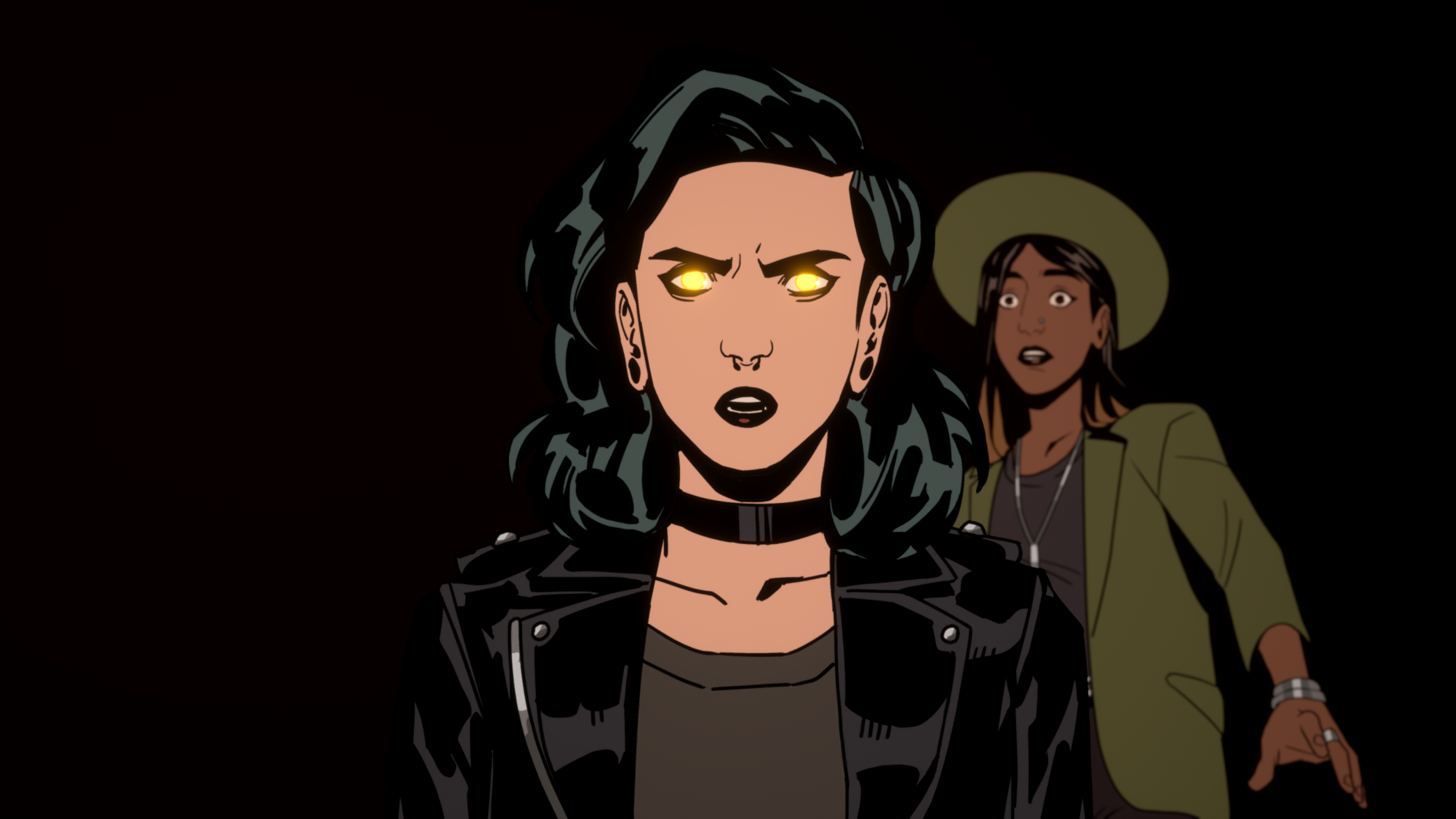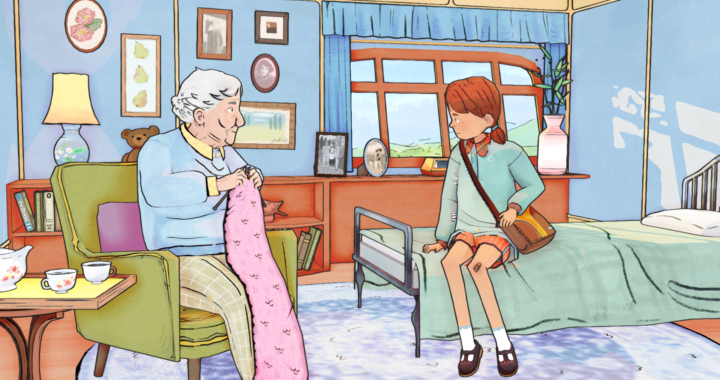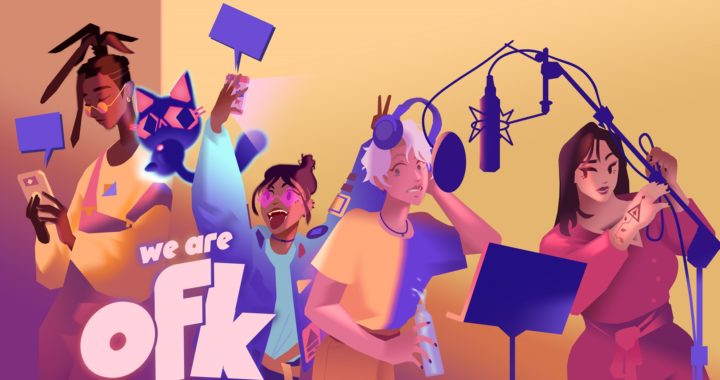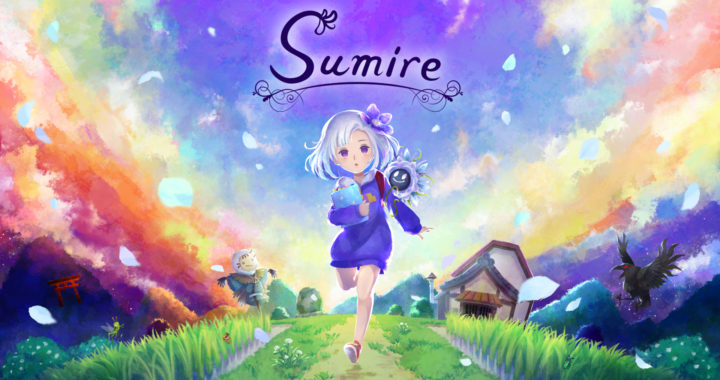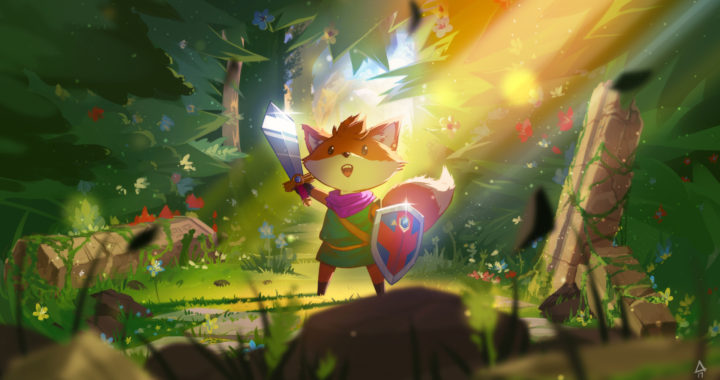Comic Review: Geek Girl
Disclaimer: I received a review copy of this comic from its creator for free.
Geek Girl could be a story of female friendship and empowerment, personal growth, and learning to overcome the hurdles we create for ourselves. Instead, it’s a sexiness-centered trope-fest that takes a few too many pages out of Mean Girls’ book.
From the start, Geek Girl comes from a questionable place. Ruby, the protagonist’s, origin is her tricking a creepy nerdy guy into giving her the super glasses he invented by liquoring him up and winning at strip poker. Through this interaction, it becomes apparent that being tone-deaf about issues surrounding consent and how women’s bodies are viewed and valued is going to be the overall focus of this book.
 Wearing the glasses (that she wanted, mind you) makes her feel un-sexy, which becomes a big, repetitive deal as Ruby, the protagonist’s, main personal conflict. Instead of focusing on Ruby’s fledgling superhero identity or how she’s finding a balance in her personal life, the main arc just harps on her not feeling confident in her sexiness. Even the one friendship that she manages to retain serves to further this end. Summer, Ruby’s friend and confidant, mostly factors in as the person who created Ruby’s scanty costume, or who gives her pep-talks that she’s still hot even with the glasses on. Even though this is one of the only comics I’ve seen that actually gives a reason for the skimpy costume, it’s still a really nonsensical reason. It’s made for a woman, by a woman, but still only focuses on being attractive instead of protection from the super-baddies Ruby faces off against. While Summer is clearly meant to be the civilian friend who’s cheering Ruby’s superhero career on, the lack of deeper development of their relationship makes it ring fairly hollow.
Wearing the glasses (that she wanted, mind you) makes her feel un-sexy, which becomes a big, repetitive deal as Ruby, the protagonist’s, main personal conflict. Instead of focusing on Ruby’s fledgling superhero identity or how she’s finding a balance in her personal life, the main arc just harps on her not feeling confident in her sexiness. Even the one friendship that she manages to retain serves to further this end. Summer, Ruby’s friend and confidant, mostly factors in as the person who created Ruby’s scanty costume, or who gives her pep-talks that she’s still hot even with the glasses on. Even though this is one of the only comics I’ve seen that actually gives a reason for the skimpy costume, it’s still a really nonsensical reason. It’s made for a woman, by a woman, but still only focuses on being attractive instead of protection from the super-baddies Ruby faces off against. While Summer is clearly meant to be the civilian friend who’s cheering Ruby’s superhero career on, the lack of deeper development of their relationship makes it ring fairly hollow.
It only gets worse as the story progresses. The other friendships featured in the series are shallow and unrealistic. Acquiring the super glasses makes Ruby seem like a “dork” to her friends because she becomes clumsy while adjusting to the strength they give her, and they’re not the most flattering. At one point, she is even told that they don’t want to be friends with her due to her dorkiness. The cringe-worthy dialogue and blatant reliance on high school movie tropes of how female friend groups operate make it apparent that no women had a hand in writing these interactions.
 Geek Girl’s tone-deafness isn’t constrained to just the male gaze or what real human relationships look like. It also branches out into its treatment of queer people and themes. The book blatantly plays into the “straight girl playing gay to feel sexy” trope, and has weird mixed messaging when it comes to queerness, boundaries, and violence. Most mentions of queerness are either fetishized or derogatory, and blatantly lack an awareness of how queer people move through the world or the risks they take by even existing in a public way.
Geek Girl’s tone-deafness isn’t constrained to just the male gaze or what real human relationships look like. It also branches out into its treatment of queer people and themes. The book blatantly plays into the “straight girl playing gay to feel sexy” trope, and has weird mixed messaging when it comes to queerness, boundaries, and violence. Most mentions of queerness are either fetishized or derogatory, and blatantly lack an awareness of how queer people move through the world or the risks they take by even existing in a public way.
The super hero side of things isn’t much better quality-wise. While it’s not uncomfortable in the same ways as Ruby’s personal arc, it’s just not all that interesting. Story shifts often feel random and oddly placed within the narrative structure, and sometimes don’t tie back into the main story until after they already feel irrelevant. The main villain’s reason for her actions isn’t all that compelling and is wildly underdeveloped. There’s also another villain that has brief cameos that feel incredibly disjointed and, again, underdeveloped.
That’s the main takeaway of all of this: pretty much everything about Geek Girl is lacking in depth and development. The characters, story beats, and statements the comic is trying to make all feel like they were touched on for a moment before moving on to something else. “Being nerdy” is the only element that gets a real amount of attention, and even that is a repetition of the classic media tropes of being clumsy and unattractive. If some of these themes were being used in a campy way, or to actually say something through satire, it would be great. But unfortunately, Geek Girl takes itself all too seriously without any real depth to back it up, and suffers for it.
All image credit to Geek Girl Comics.
